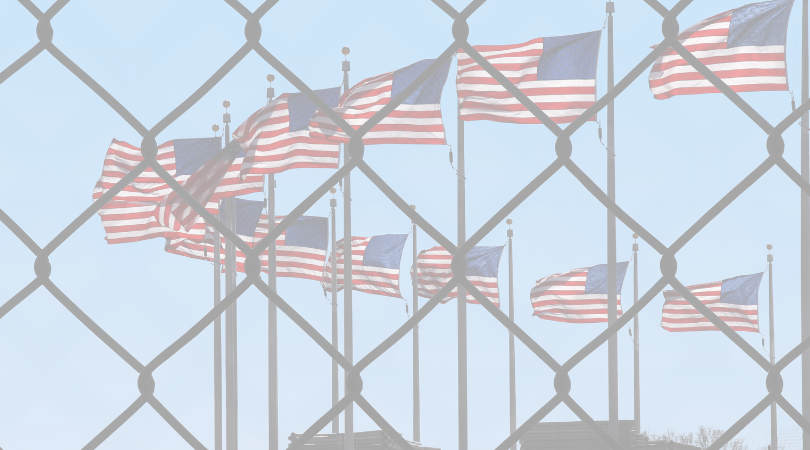The current COVID-19 or coronavirus outbreak has affected every government agency to varying degrees. Immigration and Customs Enforcement is no exception. As ICE is tasked with immigrant check-in appointments, detention and removal, instances of interpersonal contact between immigrants and ICE employees can be very high, creating issues during a time where maintaining social distancing is crucial. ICE has issued several statements and orders modifying their current operations during this crisis.
Changes to Immigration Enforcement
ICE is tasked with enforcing more than 400 immigration statutes. Oftentimes this enforcement manifests itself in arrests and raids by ICE officers of immigrants who are suspected of violating these statutes. Beginning on March 18, 2020, ICE has stated their current immigration enforcement and removal operations will be limited to “public-safety risks” and “individuals subject to mandatory detention based on criminal grounds”.
The criteria for individuals to be subject to mandatory detention is codified under INA § 236(c)(A)-(D). This is commonly referred to as “ICE holds” as local law enforcement will release the person into ice custody. This is unchanged during the current crisis.
What is less clear is the designation of “public safety risks”. There is no definition under the INA and most likely will be a decision made on a case-by-case basis under the discretion of ICE. While anti-gang operations as well as drug and human trafficking were specifically mentioned there does no exist a definitive list.
In all other cases ICE has stated they will be exercising discretion by delaying enforcement actions until after the crisis, as well as utilizing alternatives to detention if appropriate. They also assured they would not be conducting enforcement operations at medical facilities, except under extraordinary circumstances. This is to prevent immigrants from forgoing medical care out of fear of potentially being apprehended by ICE.
Changes to ICE Check-ins
Immigrants who are released from the border will now be scheduled for their initial ICE check-in and reporting at 60 days from release as opposed to the usual timeframe of 30 days or less.
As for immigrants who have been regularly checking in with ICE, they advise individuals to contact their local ICE office by telephone for guidance prior to the ICE check-in appointment date. These will vary from office to office and state to state, likely dependent on state shelter in place orders and restrictions.
For individuals who are participating in ISAP, all in person check-ins are cancelled until further notice as of March, 18 2020. ISAP will begin conducting check-ins over the phone, it is essential that ISAP has the participants current phone number.
Changes to ICE Detention
Currently ICE has suspended all social visitation to the detention centers. ICE has stated they will be working to allow families other means of communication in lieu of in-person visitation.
Attorney visits have also been limited. ICE is requiring attorneys to wear personal protective equipment, (“PPE”), when visiting detention facilities. Attorneys are to provide their own PPE as ICE will not be supplying it at the detention centers.
While all non-detained hearings have been postponed through May 1, 2020, detained hearings including bond hearings have continued. Although detained hearings have not been postponed across the board, the Department of Justice has been closing detained courts due to cases of COVID-19. Usually these announcements happen shortly before the closure and are only found on the Department of Justice’s website or the EOIR twitter account. This has left many individuals in the dark not knowing if their family member’s scheduled detained hearing will go forward until shortly before. Making sure your family member is represented during these confusing series of events is now more important than ever.
Wilner & O’Reilly is a multi-state law firm exclusively dedicated to the practice of immigration law. During these uncertain times, we at Wilner & O’Reilly are closely monitoring developments related to COVID-19 so that we can provide individuals with the up-to-date immigration information they need. For individualized advice on your immigration situation, please feel free to contact us. We offer free consultations at our offices in Orange, Riverside, Fresno, Sacramento, and San Francisco, California; Salt Lake City and Orem, Utah; and Boise, Idaho.
ABOUT AUTHOR(S)
DANNY CHRISNEY – ATTORNEY

Danny Chrisney is an associate attorney at the Wilner & O’Reilly Fresno office. The son of a Guatemalan immigrant, he speaks fluent Spanish and Portuguese. He studied at Brigham Young University where he earned a Bachelor of Arts in Linguistics with a Minor in Portuguese. Danny received his Juris Doctor degree from the Sandra Day O’Connor College of Law at Arizona State University where he graduated with Highest Pro Bono Distinction.
RICHARD WILNER – FOUNDING PARTNER

Richard M. Wilner is a founding member of Wilner & O’Reilly, APLC, and is Board Certified by the State Bar of California as a Specialist in Immigration and Nationality Law. He is admitted to practice law in the State of California and before the U.S. District Courts for the Central, Northern and Southern Districts of California, the Northern District of Texas, the U.S. Court of Appeals for the Ninth Circuit and the U.S. Supreme Court.Mr. Wilner has received the coveted Martindale-Hubbell AV Rating, the highest legal and ethical rating that one can receive from one’s peers in the legal community. Similarly, he has been awarded the title of Super Lawyer from 2007 to the present. He is best known for his work in advising Fortune 500 companies, middle and small market businesses, entrepreneurs, and foreign nationals of extraordinary ability in athletics, arts, and sciences in the complex area of U.S. Immigration and Nationality Law.



Comments are closed.